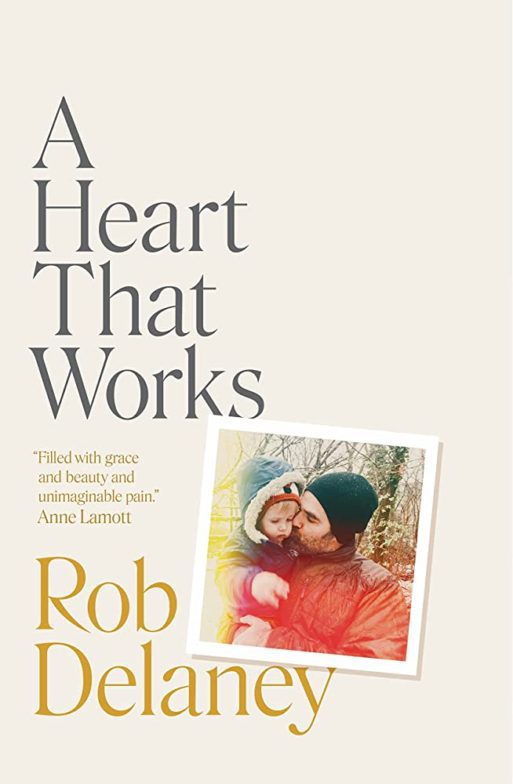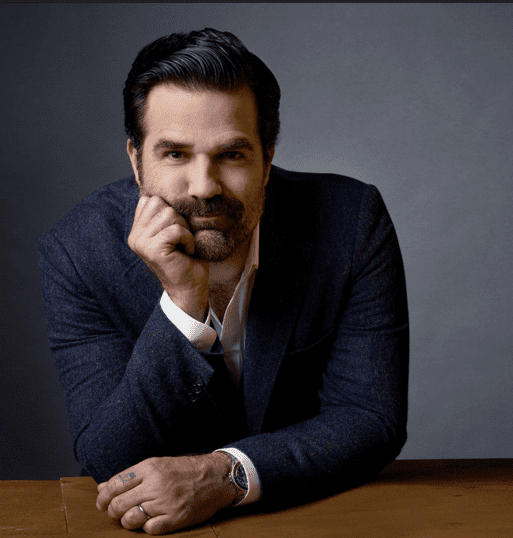
In “A Heart That Works,” Rob Delaney manages to do what seems impossible: survive the death of his toddler son; write a memoir about it; and be funny while doing so. In 2016, Delaney’s life seemed to be chaotic but good: Already known for his stand-up comedy, he was starting to create the hit series “Catastrophe,” which had caused him to move to London with his wife Leah and their two young sons. Then, as his youngest son, Henry, approached his first birthday, he began randomly vomiting, and after several weeks, was diagnosed with a brain tumor. From there, the family faced an uphill battle to treat Henry’s tumor, which Delaney details with deep love for his son and also a sense of how completely ridiculous it is that a toddler has cancer.
Delaney shares his story with a sense of disbelief — disbelief that a tumor could have overtaken his young son’s brain, but also disbelief that he got to know and care for and love the unique person that Henry was. When Henry went through surgery and later a tracheostomy that left him needing a higher level of care, Delaney embraced it with love. His words beautifully articulate a father’s passionate, limitless love for his child, and the ways that caring for Henry was an honor for him. Delaney reflects how after Henry died, he craved being able to care for him again:
“One thing that f****ed me up badly was losing the callouses that built up on my fingers from operating his suction machine … After Henry died, those callouses began to fade away. I hated that. I hated it so much. Please let me have my little hard bumps on my fingers that I can rub and think of him. They reminded me of helping him breathe, which it was my privilege to do. I could touch them and know they were there because of him. They told me that I loved him and he needed me and that he was real.”
Delaney also doesn’t shy away from the harsh and difficult realities of what it means for a child to have cancer. He reflects on the medical care in the U.K., and with many four-letter words, eviscerates the American medical system and privatized health insurance. He talks about how he and his wife decided to stop trying futile treatments and instead move forward with hospice. He shares how the image of holding Henry after death, as rigor mortis set in, continues to flash through his mind, and how he has to fight off the desire to share gruesome details with acquaintances, wanting to force them to understand what he went through.

Author Rob Delaney
Credit: Spiegel and Grau
Throughout all this, Delaney still manages to be uproariously funny. Many sections of “A Heart That Works” caused me to laugh out loud. When the family first hears the diagnosis, Delaney’s father-in-law weeps, “I wish it was me instead of Henry.” Delaney responds with, “We do too, Richard,” humorously poking fun at how obvious it is that anyone would rather have an elderly person diagnosed with cancer than an infant. The family starts to laugh, and it is hard for the reader to not do the same. Delaney’s sense of humor and comedic timing are not just a welcome respite from the heaviness of grief, but also offer one of the purest expressions of how utterly absurd both the light and dark moments of life can be.
While this book is deeply engaging and beautiful, it is not for everyone. Delaney doesn’t shy away from expletives and is understandably blunt given everything he has endured. He offers his story in a raw format that draws the reader in, but anyone who blushes at the sight of a curse word may struggle to get through it. Ultimately though, “A Heart That Works” is hard to put down and impossible to forget. A father’s love shines through the tragedy, and Delaney invites us to not just mourn Henry, but also to celebrate him: “In between Henry’s birth and his death was, of course, his life. That was my favorite part.”

 “A Heart That Works” by Rob Delaney
“A Heart That Works” by Rob Delaney


 Our Annual Seven Holiday Gifts for Someone Who Is Grieving, 2024 Edition
Our Annual Seven Holiday Gifts for Someone Who Is Grieving, 2024 Edition

 “Hands Up to the Sky” by Michael Franti & Spearhead
“Hands Up to the Sky” by Michael Franti & Spearhead














